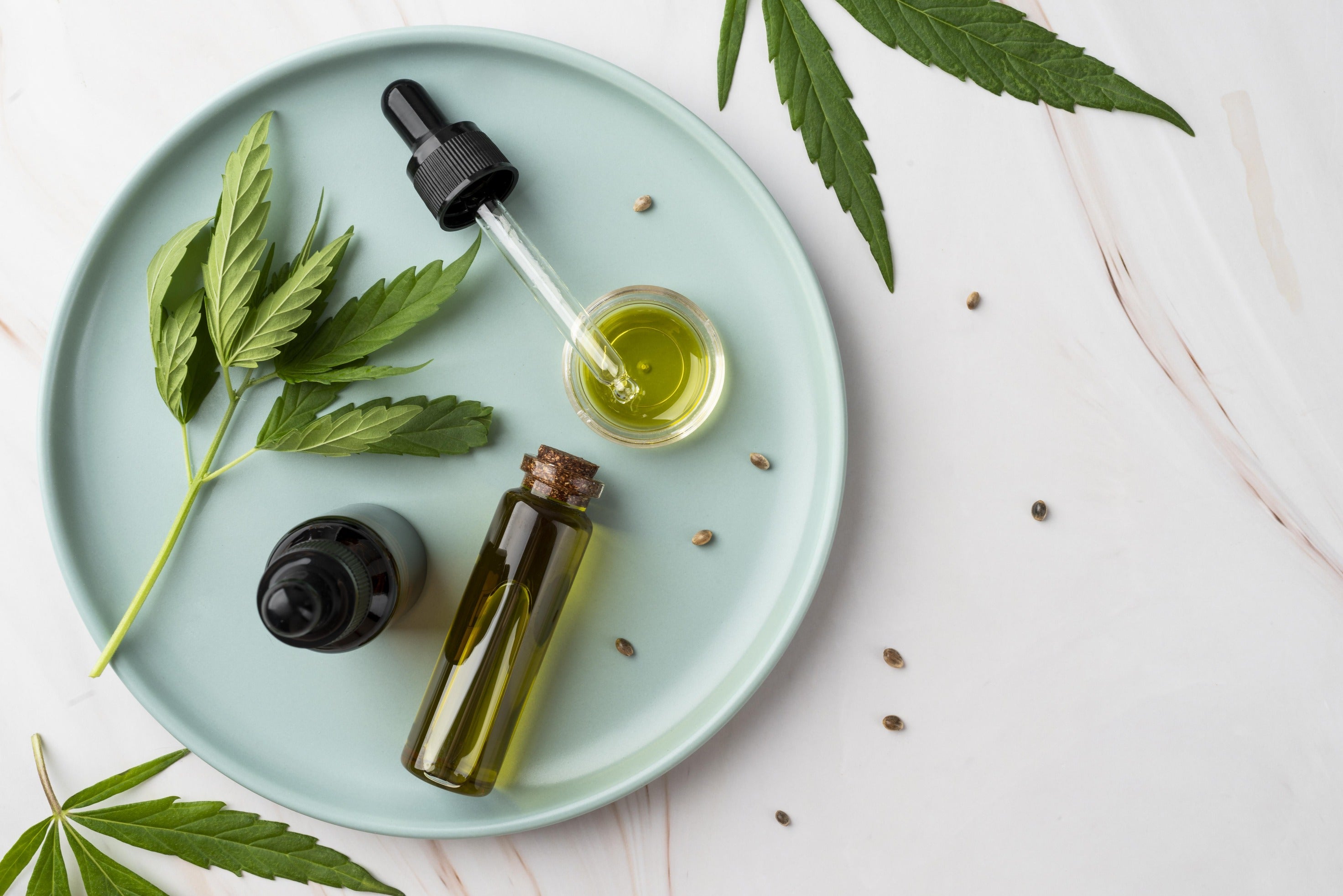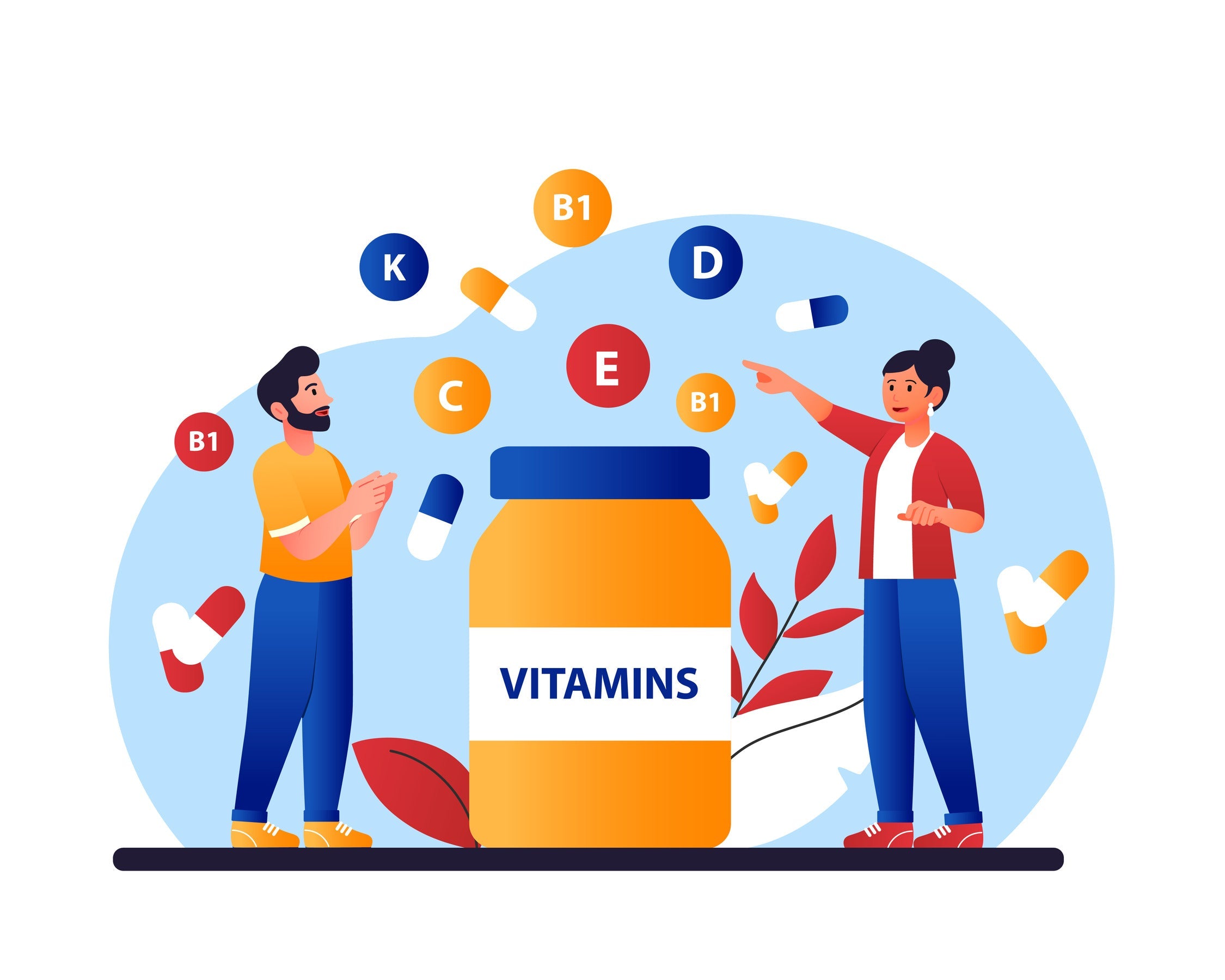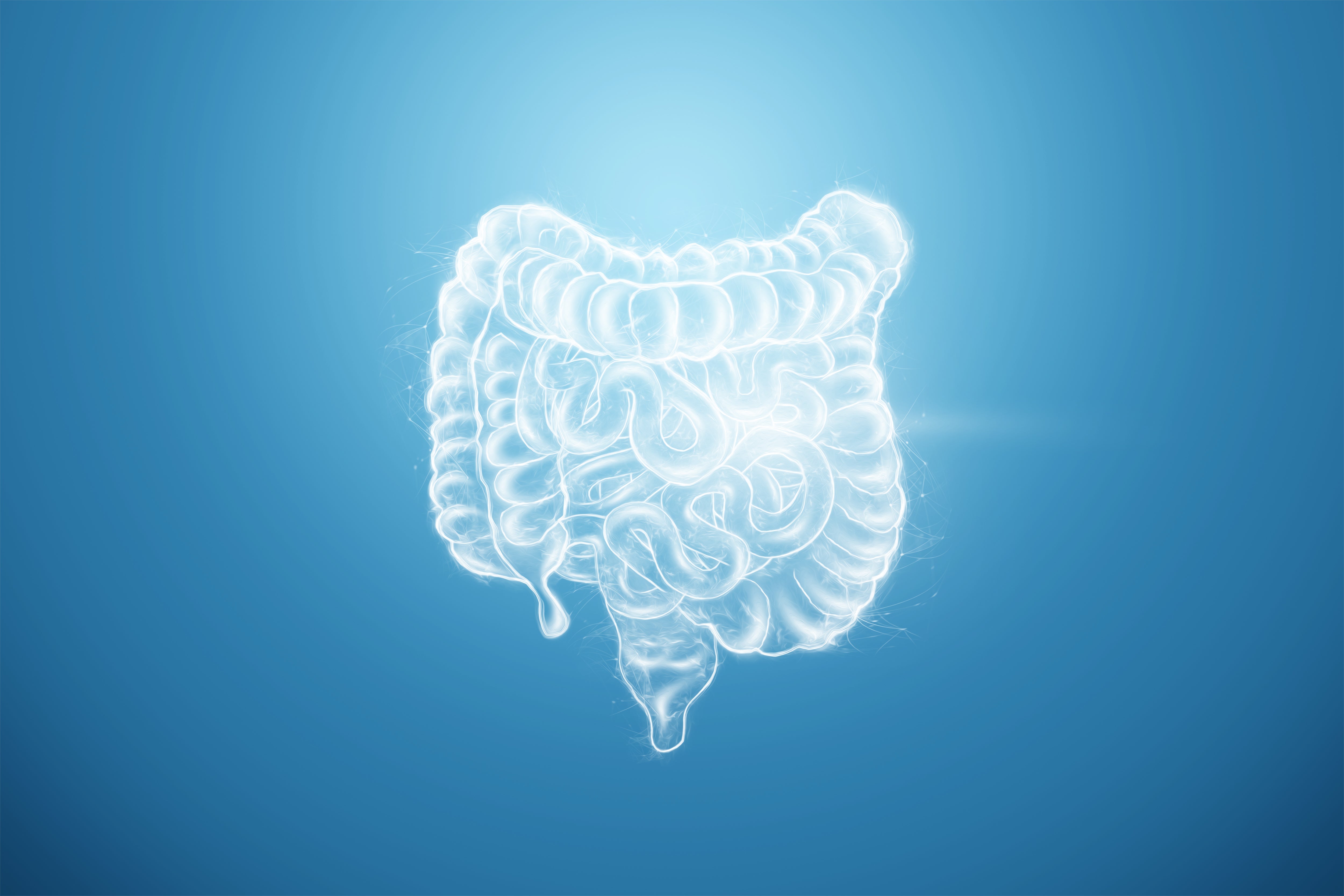
CBD Oil: The OTC Medical Cannabis?
People get very excited about CBD oil owing to it being sourced from the hallowed cannabis (weed, ganja, marijuana, etc.) plant. Unfortunately, CBD does not get you high though- because it does not have psychoactive properties.
However logic and reason are not strong points of stoners. I have, on multiple occasions, had them reach for my bottle of CBD oil- already high as a kite on their joint, their bloodshot eyes lighting up momentarily with awe and excitement to see what kind of novel effect this new entity could bring to their mundane lives.
They’re always disappointed of course. CBD at its typical dosages has a very mild effect- especially compared to the usual black market weed.
So What Is CBD?
The cannabis plant is a very complex biological system. It has a vast variety of chemical compounds with varying physiological effects- cannabinoids, terpenes, flavonoids, etc. Among them, the cannabinoids are the most well-known. And among the cannabinoids, two in particular are the most abundant, the most well-studied, and known to be responsible for most of the primary effects of cannabis consumption- THC and CBD.
THC- Tetrahydrocannabinol, commonly known as THC, is the principal psychoactive compound found in the cannabis plant. It has a range of effects on the body, but iIts most prominent impact is the sense of euphoria or "high" that users experience, often accompanied by alterations in perception, mood, and sensory perception.
CBD- Cannabidiol, commonly known as CBD, is the prominent non-psychoactive compound found in the cannabis plant. Unlike THC, CBD does not induce euphoria or alter one's state of consciousness. It doesn’t get you “high”. It interacts with the body in a more subtle manner. CBD is primarily associated with potential therapeutic benefits, including its use for pain management, anxiety reduction, and anti-inflammatory properties.
So what does it feel like? The most prominent effects experienced upon CBD consumption are relaxation, feelings of calmness, reduced anxiety, and help with sleep and pain relief.
CBD oil and other CBD-containing extracts are a massive industry today. Cannabis extracts containing equal to or less than 0.03% THC enjoy a fairly good level of legal acceptance in most parts of the developed world.

Annual sales of CBD products in the USA have been over 4 billion USD for the last 5 years [1]. You get CBD-infused products of all kinds ranging from soft drinks and candy to CBD-infused nut butters!
Topical usage of CBD is very popular too. CBD-containing pain relief balms and roll-ons are common. You can also just add a few drops of CBD oil into your massage oil for an extra dose of relaxation!
The Endocannabinoid System- Your Body Making Its Own Weed To Stay Sane
Yes, it’s true. Your body has a whole organ system dedicated to processing cannabis and yet the government has made it illegal.
The endocannabinoid system (ECS) is a fascinating and intricate network of receptors, enzymes, and endocannabinoids that plays a crucial role in maintaining balance and harmony within the human body. This system exists in all vertebrates, including humans, and is responsible for regulating various physiological processes.
“Endo” cannabinoids as the name suggests are cannabinoids produced endogenously within the body. As compared to THC and CBD which are “exo” cannabinoids.
The ECS comprises three main components:
Cannabinoid Receptors: These are receptors found throughout the body, with two primary types known as CB1 and CB2 receptors. CB1 receptors are primarily present in the central nervous system, while CB2 receptors are mostly located in immune cells and peripheral tissues.
Endocannabinoids: As mentioned, these are naturally occurring compounds produced by our bodies, such as anandamide and 2-arachidonoylglycerol (2-AG). These molecules act as messengers, binding to cannabinoid receptors to trigger various responses.
Enzymes: Enzymes like fatty acid amide hydrolase (FAAH) and monoacylglycerol lipase (MAGL) are responsible for breaking down endocannabinoids once their work is done.
The ECS serves to maintain balance, or homeostasis, by regulating functions such as mood, sleep, appetite, immune response, pain perception, and more. When there is an imbalance in the body, the ECS works to restore it. For example, if there is inflammation, endocannabinoids can reduce inflammation, and if there's excessive anxiety, they can help alleviate it.
Understanding the endocannabinoid system has led to significant advancements in medical research and the development of cannabis-based therapies targeting this system to treat various health conditions. It underscores the importance of this internal regulatory mechanism in promoting overall well-being.
How Weed Works
Exocannabinoids in Cannabis, such as THC and CBD, exert their effects by interacting with the body's endocannabinoid system (ECS). This intricate relationship begins with the activation of cannabinoid receptors, primarily CB1 and CB2, which are spread throughout the body.
THC closely resembles the structure of anandamide, a natural endocannabinoid. When THC enters the body, it binds to CB1 receptors, mainly found in the brain and central nervous system. This binding triggers a cascade of effects, resulting in the sensation of euphoria, altered perception, and changes in mood. Essentially, THC "hijacks" the ECS, leading to its signature psychoactive high.
CBD on the other hand, interacts with the ECS in a different manner. It doesn't directly bind to CB1 or CB2 receptors but instead influences them indirectly. CBD can enhance the body's endocannabinoid tone by inhibiting enzymes responsible for breaking down endocannabinoids like anandamide. By doing so, CBD increases the availability of these natural messengers, potentially leading to mood stabilization, pain relief, and reduced anxiety. Additionally, CBD has the ability to affect other receptors, such as serotonin receptors, contributing to its broader therapeutic potential.
In essence, cannabis compounds, including THC and CBD, act as modulators of the endocannabinoid system, either directly or indirectly. By doing so, they can impact a wide range of bodily functions, providing both the intoxicating effects associated with THC and the potential therapeutic benefits attributed to CBD, all while striving to maintain the delicate balance of the ECS and overall well-being.
Proven Therapeutic Benefits Of CBD
CBD is known to have a wide range of health benefits and is used both as an OTC and by holistic practitioners for targeted treatment. While it is known to be helpful for a wide range of conditions on a clinical and anecdotal level, the following are some of the benefits with the most amount of research behind them:
Pain Relief: For millennia, cannabis has been harnessed to alleviate pain, with origins tracing back to ancient Chinese medicine. Contemporary research suggests that CBD, among other components, may be responsible for these analgesic effects. By targeting endocannabinoid receptor activity and reducing inflammation, CBD offers relief from chronic pain, even in conditions like fibromyalgia. [2] [3]
Mental Health: CBD holds promise as a natural treatment approach for certain mental health disorders. Studies indicate its potential to reduce symptoms of depression, anxiety, and even psychosis, offering hope to those grappling with these conditions.[4] Notably, a 2019 study demonstrated CBD's efficacy in alleviating PTSD-related symptoms [5].
Cancer Symptom Management: CBD may provide relief from cancer-related symptoms and side effects, including nausea, vomiting, and pain. Research from 2022 suggests its potential in this realm [6].
Neuroprotection: CBD exhibits promise in benefiting individuals with neurological disorders. Studies suggest that CBD, often in combination with THC, can alleviate pain and muscle spasticity in those with multiple sclerosis [7]. CBD has received FDA approval for treating certain seizure disorders, such as Dravet syndrome. Some evidence also hints at its potential to improve symptoms associated with conditions like Parkinson's disease, Huntington's disease, autism spectrum disorder, and cerebral palsy. [8]
Heart Health: Elevated blood pressure is linked to various health risks, including stroke and heart attack. Research indicates that CBD may offer benefits for individuals with high blood pressure by influencing heart muscle contractions and widening blood vessels [9].
CBD's therapeutic potential extends beyond the mentioned areas. Preclinical evidence suggests it could aid in substance misuse treatment by alleviating anxiety and depression in individuals dependent on certain drugs. There is research suggesting that a CBD and THC combination may extend the lives of those with glioblastoma, an aggressive form of cancer. Additionally, CBD may improve sleep in individuals with certain sleep disorders.
CBD Good THC Bad?
Don’t worry, getting high is not a bad thing.
THC by itself offers many unique health benefits too. While OTC usage is mostly limited to CBD only, practitioners who specialise in medical cannabis therapy always use a combination of CBD and THC in varying ratios based on the individual’s requirement and never CBD alone. The “high” is known to be a harmless side effect that usually only occurs when there is some THC overdose.
Cannabis is a popular herb used by practitioners of functional medicine and other holistic modalities. World-renowned functional medicine practitioner Dr Terry Wahls, creator of the Wahls Protocol, uses medical cannabis extensively in her practice.
The reason for OTC usage being limited to CBD only probably has to do with government regulations again since CBD (maximum 0.03% THC) is legal in most places.
Why Illegal Weed Gets You So High
Different strains of cannabis have very different constituents, including different amounts of CBD and THC.
Just like farmers play around with cross-breeding to get more desirable results with most plant foods, so do professional cannabis growers.
And just like modern-day fruits have many times higher sugar content than what was available in pre-agricultural times- in the case of weed the desirable component among recreational users has always been the high you get. Thus what gets selected for is THC content.
Some reports suggest modern-day cannabis strains have as much as 9 to 10 times the THC content of strains from 50 years ago! [8] [9]
“Sarva Roga Nivarini”: How Ayurveda Hails Cannabis
Cannabis is among the top 5 herbs for health according to Ayurveda.
It is known by the name “Vijaya” meaning victory. It is among the herbs considered “sarva roga nivarini”- meaning one that cures all illness.
Adverse Effects?
Ones who go hard with the party drugs know that alcohol overdose can screw you up really bad. Weed, in comparison, is highly safe and there are almost never any serious physical consequences with overdosing it (just bad trips at the most).
This is because cannabis is very well tolerated by the body. There is no known lethal dosage. People dose CBD up to as high as 1000 mg without any negative effects.
One very rare but serious issue with cannabis consumption though is psychosis. It occurs in cases of first-time usage with a very high THC dose, and usually in underage users.
There is some risk of dependency and addiction, but it is relatively very low. Especially when compared to pharmaceutical counterparts like benzodiazepines and other nervous system-affecting drugs which lead to terrible side effects with even a couple of months of use.
What is important to note is while cannabis has a very good safety profile, the little risk of side effects that does exist is only a concern with illegal usage which is with what almost all such cases occur.
With black-market cannabis, you have no idea what you’re getting. And like I mentioned, the strains available nowadays are known to have very high levels of THC. Getting it illegally may be cheaper, but it’s not what we recommend if you’re looking to use cannabis to optimize your health.
Should You Take It?
Yes, go for it.
As I mentioned, CBD is available very easily- often OTC. Otherwise, you may need a prescription sometimes which you can quite easily get. Many sellers today have a doctor on hand and give you a free consultation upon making a purchase.
For conditions like anxiety, pain, insomnia or just some good old stress relief, CBD is very commonly self-prescribed very effectively.
For more serious conditions, it’s recommended to work with a practitioner who may even incorporate some THC into the mix.
It’s important to note that while CBD and cannabis are great natural treatments with little to no side effects, they are an adjunct medical therapy only that is mostly effective for symptomatic relief only. If you’re looking to reverse a serious medical condition, you need to work on your nutrition and lifestyle and should consult with a credible functional medicine practitioner who will comprehensively assess your health using advanced diagnostics.
REFERENCES
- Dollar sales of cannabidiol (CBD) products in the United States from 2022 to 2026(in million U.S. dollars)
https://www.statista.com/statistics/1067467/cbd-product-dollar-sales-us/
- Pharmacotherapeutic considerations for use of cannabinoids to relieve pain in patients with malignant diseases
https://pubmed.ncbi.nlm.nih.gov/33400996/
- Cannabidiol Use for Fibromyalgia: Prevalence of Use and Perceptions of Effectiveness in a Large Online Survey
https://pubmed.ncbi.nlm.nih.gov/33400996/
- Cannabidiol as a Treatment for Mood Disorders: A Systematic Review
https://www.ncbi.nlm.nih.gov/pmc/articles/PMC7385425/
- Cannabidiol in the Treatment of Post-Traumatic Stress Disorder: A Case Series
https://www.ncbi.nlm.nih.gov/pmc/articles/PMC6482919/
- Cannabidiol (CBD) in Cancer Management
https://www.ncbi.nlm.nih.gov/pmc/articles/PMC8869992/
- The Efficacy of Cannabis on Multiple Sclerosis-Related Symptoms
https://www.ncbi.nlm.nih.gov/pmc/articles/PMC9148011/
- The Problem with the Current High Potency THC Marijuana from the Perspective of an Addiction Psychiatrist
https://www.ncbi.nlm.nih.gov/pmc/articles/PMC6312155/
- Throwback: Strains from the 70s
https://www.leafbuyer.com/blog/1970s-marijuana-strains/#:~:text=Supporting%20this%20theory%2C%20recent%20reports,between%2025%20and%2030%20percent.



1 comment
CBD oil has emerged as an over-the-counter (OTC) option in the realm of medical cannabis. With its non-psychoactive properties and potential therapeutic benefits, it’s increasingly popular for various health conditions. However, its effectiveness, quality, and regulatory status raise questions, warranting further research and informed consumer decisions.
Visit – mymmjdoctor.com/the-best-cbd-gummies-for-pain-depression-and-anxiety/
Olivia Patricia
Leave a comment
This site is protected by hCaptcha and the hCaptcha Privacy Policy and Terms of Service apply.